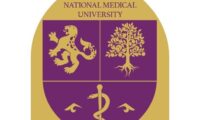DOI 10.53511/PHARMKAZ.2023.75.17.012
Г.И.Нукусбекова1-2, Д.Е.Тогузбаева1-2, С.А.Таукелева2, А.Р.Медеулова1, Р.П.Суатбаева1
1Казахский национальный медицинский университет имени С.Д. Асфендиярова
2 Казахстанско-Российский медицинский университет
ДИАГНОСТИЧЕСКАЯ ЗНАЧИМОСТЬ АКУСТИЧЕСКОГО АНАЛИЗА ГОЛОСА У
ЛИЦ ГОЛОСОВОЙ ПРОФЕССИЙ С ЛАРИНГОФАРИНГЕАЛЬНЫМ РЕФЛЮКСОМ
Резюме: Ларингофарингеальный рефлюкс (ЛФР) — воспалительное заболевание гортаноглотки,
который приводит к развитию нарушения голоса и поражения голосовых складок. ЛФР приводит
к значительным макроскопическим и микроскопическим гистопатологическим изменениям слизистой оболочки вибрационного края голосовых складок. Многие исследования предполагают, что изменения в гортани, такие как микротравмы, высыхание пространства Рейнке, изменения эпителиальных клеток, воспалительные процессы, сухость слизистой оболочки и увеличения эпителия,
возможно, приводят к охриплости, взаимосвязанную с рефлюксом, и ухудшению показателей субъективной и объективной оценки качества голоса.
Акустический анализ голоса — является объективным и не инвазивным методом диагностики голосовых расстройств, который позволяет быстро и качественно оценить состояние нарушения
голоса. Часто ларингоскопия может не в полной мере отражать реальное состояние структур
гортани. Наличие отклонения от нормативных показателей акустического анализа голоса является показанием для назначения эмпирического лечения.
Ключевые слова: ларингофарингеальный рефлюкс, акустический анализ голоса, дисфония, нарушения голоса.
СПИСОК ЛИТЕРАТУРЫ
1 J. A. Koufman, “The Otolaryngologic Manifestations of Gastroesophageal Reflux Disease (GERD): A Clinical Investigation of 225 Patients Using Ambulatory
24-Hour pH Monitoring and an Experimental Investigation of the Role of Acid and Pepsin in the Development of Laryngeal ,” Laryngoscope, vol. 101, no. S53,
pp. 1–78, 1991, doi: https://doi.org/10.1002/lary.1991.101.s53.1.
2 I.-C. Nam, J.-S. Bae, M.-R. Shim, Y.-S. Hwang, M.-S. Kim, and D.-I. Sun, “The importance of preoperative laryngeal examination before thyroidectomy and
the usefulness of a voice questionnaire in screening.,” World J. Surg., vol. 36, no. 2, pp. 303–309, Feb. 2012, doi: 10.1007/s00268-011-1347-5.
3 J. R. Lechien, A. Schindler, C. Robotti, L. Lejeune, and C. Finck, “Laryngopharyngeal reflux disease in singers: Pathophysiology, clinical findings and
perspectives of a new patient-reported outcome instrument,” Eur. Ann. Otorhinolaryngol. Head Neck Dis., vol. 136, no. 3, Supplement, pp. S39–S43, 2019,
doi: https://doi.org/10.1016/j.anorl.2018.08.008.
4 R. T. Sataloff, M. J. Hawkshaw, and R. Gupta, “Laryngopharyngeal reflux and voice disorders: an overview on disease mechanisms, treatments, and research
advances.,” Discov. Med., vol. 10, no. 52, pp. 213–224, Sep. 2010.
5 J. R. Lechien, S. Saussez, B. Harmegnies, C. Finck, and J. A. Burns, “Laryngopharyngeal Reflux and Voice Disorders: A Multifactorial Model of Etiology and
Pathophysiology.,” J. Voice, vol. 31, no. 6, pp. 733–752, Nov. 2017, doi: 10.1016/j.jvoice.2017.03.015.
6 J. R. Lechien et al., “Voice outcomes of laryngopharyngeal reflux treatment: a systematic review of 1483 patients.,” Eur. Arch. oto-rhino-laryngology Off. J.
Eur. Fed. Oto-Rhino-Laryngological Soc. Affil. with Ger. Soc. Oto-Rhino-Laryngology — Head Neck Surg., vol. 274, no. 1, pp. 1–23, Jan. 2017, doi: 10.1007/
s00405-016-3984-7.
7 J. R. Lechien et al., “Impact of laryngopharyngeal reflux on subjective and objective voice assessments: a prospective study.,” J. Otolaryngol. — head neck
Surg. = Le J. d’oto-rhino-laryngologie Chir. cervico-faciale, vol. 45, no. 1, p. 59, Nov. 2016, doi: 10.1186/s40463-016-0171-1.
8 bBong J. Jin, Y. S. Lee, S. W. Jeong, J. H. Jeong, S. H. Lee, and K. Tae, “Change of acoustic parameters before and after treatment in laryngopharyngeal
reflux patients.,” Laryngoscope, vol. 118, no. 5, pp. 938–941, May 2008, doi: 10.1097/MLG.0b013e3181651c3a.
9 Y. Zhou, L. Wang, P. Ning, X. Cui, and S. Sun, “[Investigation of dependability of laryngopharyngeal reflux and disorders of phonation].,” Lin chuang er bi yan
hou tou jing wai ke za zhi = J. Clin. Otorhinolaryngol. head, neck Surg., vol. 26, no. 3, pp. 97–101, Feb. 2012, doi: 10.13201/j.issn.1001-1781.2012.03.011.
10 H. Oguz et al., “Acoustic analysis findings in objective laryngopharyngeal reflux patients.,” J. Voice, vol. 21, no. 2, pp. 203–210, Mar. 2007, doi: 10.1016/j.
jvoice.2005.10.005.
11 S. Akyildiz, F. Ogut, A. Varis, T. Kirazli, and S. Bor, “Impact of laryngeal findings on acoustic parameters of patients with laryngopharyngeal reflux.,” ORL.
J. Otorhinolaryngol. Relat. Spec., vol. 74, no. 4, pp. 215–219, 2012, doi: 10.1159/000340046.
12 J. R. Lechien et al., “Gender differences in the presentation of dysphonia related to laryngopharyngeal reflux disease: a case-control study.,” Eur. Arch. otorhino-laryngology Off. J. Eur. Fed. Oto-Rhino-Laryngological Soc. Affil. with Ger. Soc. Oto-Rhino-Laryngology — Head Neck Surg., vol. 275, no. 6, pp. 1513–
1524, Jun. 2018, doi: 10.1007/s00405-018-4951-2.
13 E. M. Hassan, A. F. Abdel Hady, S. S. Shohdi, H. M. Eldessouky, and M. H. B. Din, “Assessment of dysphonia: cepstral analysis versus conventional acoustic
analysis.,” Logoped. Phoniatr. Vocol., vol. 46, no. 3, pp. 99–109, Oct. 2021, doi: 10.1080/14015439.2020.1767202.
14 G. Li, Q. Hou, C. Zhang, Z. Jiang, and S. Gong, “Acoustic parameters for the evaluation of voice quality in patients with voice disorders.,” Ann. Palliat. Med.,
vol. 10, no. 1, pp. 130–136, Jan. 2021, doi: 10.21037/apm-20-2102.
15 F. Zhang, L. Yao, Y. C. Peng, and S. X. Zheng, “[Application of dysphonia severity index in laryngeal reflux related voice diseases].,” Lin chuang er bi yan hou
tou jing wai ke za zhi = J. Clin. Otorhinolaryngol. head, neck Surg., vol. 31, no. 22, pp. 1745–1748, Nov. 2017, doi: 10.13201/j.issn.1001-1781.2017.22.0010.
16 G. Nukusbekova, D. Toguzbayeva, R. Hashimli, H. Oguz, and S. Taukeleva, “Reflux Symptom Index: Translation to the Kazakh Language and Validation.,”
J. Voice, Aug. 2022, doi: 10.1016/j.jvoice.2022.07.004.
17 P. C. Belafsky, G. N. Postma, and J. A. Koufman, “The validity and reliability of the reflux finding score (RFS).,” Laryngoscope, vol. 111, no. 8, pp. 1313–
1317, Aug. 2001, doi: 10.1097/00005537-200108000-00001.
18 P. C. Belafsky, G. N. Postma, and J. A. Koufman, “Validity and Reliability of the Reflux Symptom Index (RSI),” J. Voice, vol. 16, no. 2, pp. 274–277, Jun.
2002, doi: 10.1016/S0892-1997(02)00097-8.


































